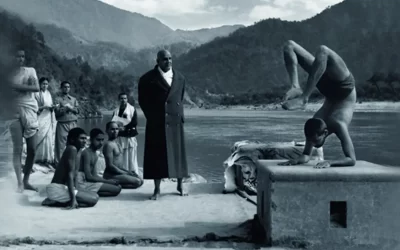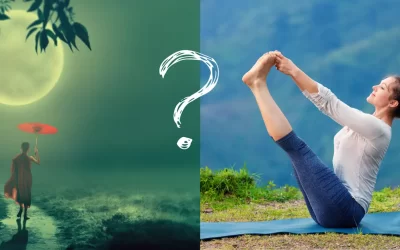Savasana (Proper relaxation)
In our increasingly interconnected world, many of us are finding it more and more difficult to be in our natural state of feeling truly relaxed. Even while surfing the web, watching tv, reading a good book, socializing with friends – many of us are still expending a great deal of physical and mental energy simply through our ever-running underlying tension – constantly keeping our muscles on some level of “alert”.
In order for us to properly regulate and balance the work of the body and mind, the great Yogis teach that we need to learn to economize the energy produced by our body. We use three methods to help assimilate this process: “Physical”, “Mental”, and “Spiritual” relaxation. While each stage is very rewarding, the great Yogis say that relaxation is not fully realized until we experience that space of spiritual relaxation, a state that becomes more and more present with each day of practice.

Physical Relaxation
Relaxation in the Sivananda tradition begins with our diet, but because that involves more of our habits and tendencies (a more challenging aspect for us to initially influence) we will leave that for the next step in the Five Points of Yoga. In this section, we are going to focus on learning how it is we go about experiencing relaxation through our āsana practice.
In our āsana practise, the physical relaxation practise begins with our lying down in a corpse pose, with arms and legs both spread apart roughly 30 degrees from our body. We are not trying to do or to be anything, we are not trying to be anywhere but where we are… allowing ourselves to fully relax… Feeling the earth beneath us.. As we ground into our experience, we subconsciously are beginning to let the tension go. As we engage this process of letting go, the yoga class instructor enrols mental autosuggestion. We use the power of the subtle mind to help us in this process of relaxing our tightened muscles. The autosuggestion passes through the muscles all the way from our toes to our head. Then, slowly, messages are sent to the kidneys, liver and the other internal organs.
Mental Relaxation
When experiencing mental tension, it is advisable for us to breathe slowly and rhythmically for a few minutes. Soon the mind will become calm. You may experience a kind of floating sensation. If you have a personal mantra, gently begin repeating it to yourself. If you do not have a personal mantra, you can repeat the mantra “om” as you visualize the light rising within. Mantra and breathwork is a fundamental component of mental relaxation.
Spiritual Relaxation
However much we may try to relax the mind, all tensions and worries cannot be completely removed until we reach spiritual relaxation. As long as we unconsciously choose to identify with the body and mind, we will have worries, sorrows, anxieties, fear, and anger. These emotions, in turn, will continue to bring us tension.
Yogis know that unless a person can withdraw from the body-mind idea and separate herself (or himself) from the ego-consciousness, there is no way of obtaining complete relaxation. Instead, the Yogi identifies with the all-pervading, all-powerful, all-peaceful and joyful Self, or pure consciousness within. The Yogi knows that the source of all power, knowledge, peace and strength is in the Self, and not solely in the body. We gradually tune into this by training our thoughts to subconsciously assert our real nature, that is: “I am that pure consciousness or Self”. With this identification with the Self, we complete the process of Yogic relaxation.
“Yoga philosophy does not quarrel with any religion or faith and can be practiced by anyone who is sincere and willing to search for the Truth.”




